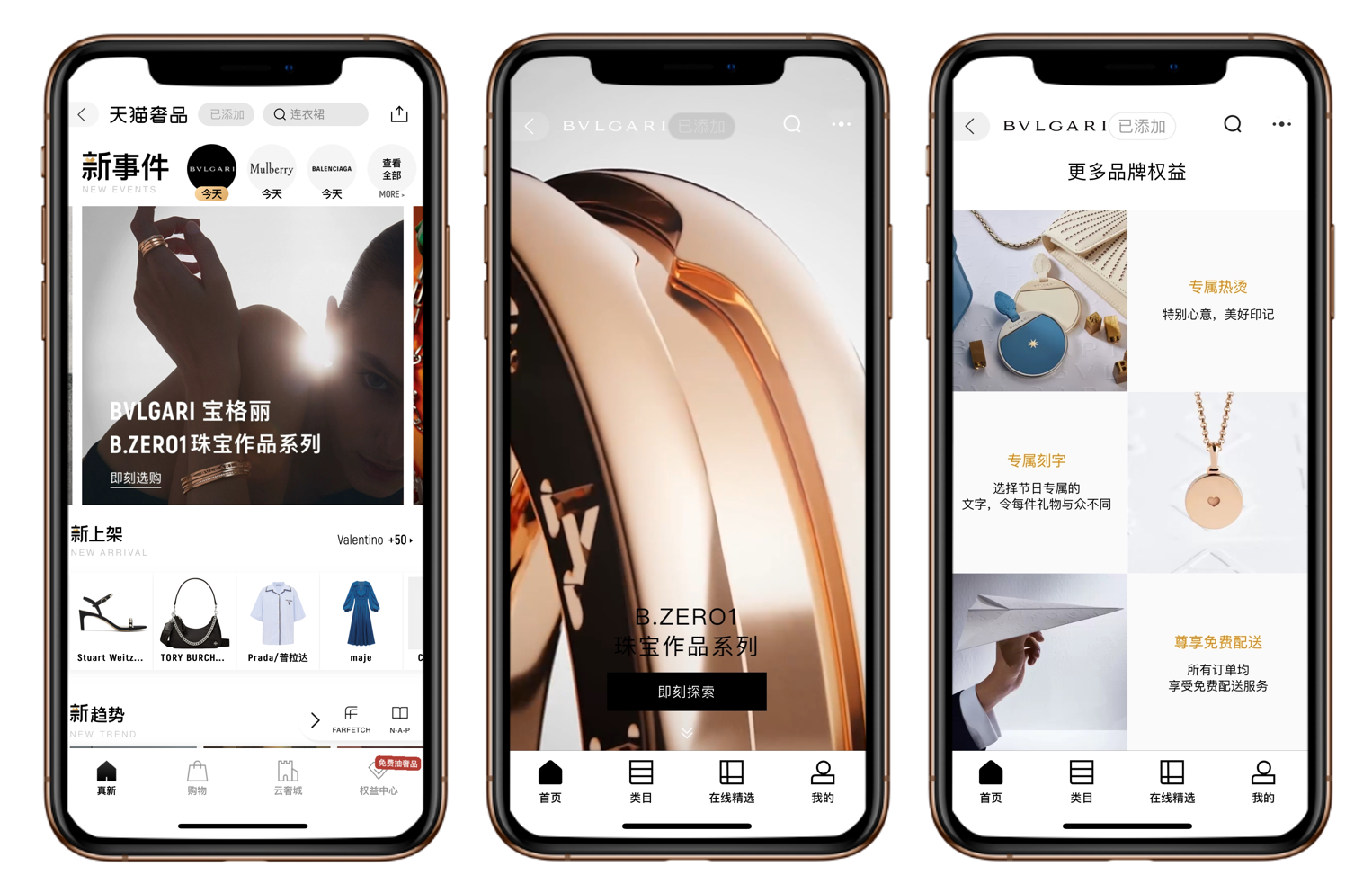
Photo credit: Alibaba Group
Bulgari said it had launched a digital store on Alibaba Group’s luxury platform as the Italian jeweler builds an omnichannel presence in the world’s second-largest economy.
E-commerce giant Alibaba and Bulgari joined forces to customize the store’s interface, blending the Italian House’s design aesthetic with a fresh digital experience for Chinese customers.
Bulgari’s tailor-made digital presence sets it apart from other stores on the Alibaba Tmall Luxury Pavilion marketplace. Other brands are expected to gradually adopt a more customized approach as they seek to migrate more of their operations online while preserving a sense of exclusivity.
“Bulgari will continue stepping up digital transformation, improve the coordination between online and offline services and lead the new trends for luxury goods,” Bulgari’s CEO Jean-Christophe Babin said in a statement.
Digital Migration
China is on track to become the world’s largest luxury goods market by 2025, according to a report by consultancy Bain & Co. Western brands are steadily expanding their physical and digital footprints to take part in the growth.
LVMH Group, which owns Bulgari, said in its 2021 annual report that expanding the share of online sales and digital communications was one of its priorities for this year.
Since the launch of Alibaba’s Tmall Luxury Pavilion five years ago, more than 200 luxury brands have joined the e-commerce platform, including LVMH, Kering, Chanel, Hermes and Richemont.
These brands can draw on expertise within Alibaba’s ecosystem to interact with China’s digitally savvy and high-net-worth customers, who expect frictionless, hyper-personalized and instant gratification when shopping.
Tmall Luxury Pavilion has added services such as bespoke engraving, virtual try-on sessions supported by augmented reality and white-glove customer support to offer shoppers the same quality of experience they get when they walk into a brick-and-mortar boutique.
“E-commerce platforms [have] become an increasingly important touchpoint both in terms of communication and sales,” said Babin.
Bulgari, established in 1884 by Sotirio Bulgari, will directly operate the store. That said, Tmall Luxury Pavilion will work with the brand in areas such as product launches, brand marketing and service experience.
Bulgari’s flagship store will draw on user behavior and feedback to add functions and improve users’ experience.
“The new concept is designed to meet consumer needs for a deeper, more immersive and pure experience of luxury brands,” said Janet Wang, who heads up Tmall Luxury Pavilion.




